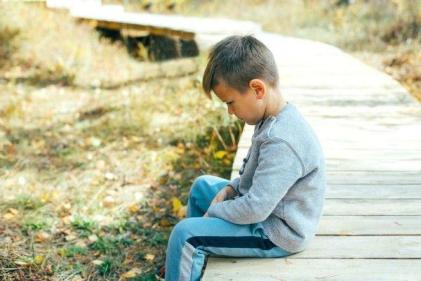In young children, ear infections (acute otitis media or AOM) are the most commonly diagnosed illnesses, affecting three of every four children before age 3.
Symptoms include pain in or around the ear, fever, reduced appetite, trouble sleeping, diarrhea and vomiting. In severe ear infections, there may be a yellow or white fluid draining from the ear canal. This is caused from the infection boring a hole in the ear drum. You could also notice a foul smell coming from the ear and your child may have difficulty hearing because of the fluid buildup in the ear. There could also be problems with balance.
Ear infections are usually the cause of bacteria infecting fluid that is buildup in the ear. This is why you will frequently see ear infections after a child has a cold, allergy or a sinus infection. During such illnesses, fluid will build up behind the eardrum and then become infected.
Children are more susceptible to ear infections because the small tubes (eustachain tubes) that connect the ear to back of the nose and throat and allow the ear fluid to drain, are immature. A toddler’s eustachain tubes are only about 1 ½ centimetre long, where an adult’s eustachain tubes are on average about 4 centimetres long.
You should contact the doctor at the first signs of an ear infection. The doctor will determine the level of infection and if it requires antibiotics. The antibiotic will not relieve your toddler’s pain so you will more than likely want to provide children’s paracetamol or ibuprofen as required. (Remember to never give your child aspirin as it is linked to Reye’s syndrome, a rare but potentially fatal disease.)
While treating your toddler’s ear infection, you can also apply warm compresses and use eardrops. Also, it helps to elevate your toddlers head as lying flat can cause the fluid to move and will create more pain.
While the majority of childhood ear infections are not serious and leave no lasting damage, an ear infection left untreated can cause loss of hearing and lead to other serious infections in the skull. If you are concerned about the number of ear infections your child has had, talk to the doctor about long term effects of ear infections.
Symptoms include pain in or around the ear, fever, reduced appetite, trouble sleeping, diarrhea and vomiting. In severe ear infections, there may be a yellow or white fluid draining from the ear canal. This is caused from the infection boring a hole in the ear drum. You could also notice a foul smell coming from the ear and your child may have difficulty hearing because of the fluid buildup in the ear. There could also be problems with balance.
Ear infections are usually the cause of bacteria infecting fluid that is buildup in the ear. This is why you will frequently see ear infections after a child has a cold, allergy or a sinus infection. During such illnesses, fluid will build up behind the eardrum and then become infected.
Children are more susceptible to ear infections because the small tubes (eustachain tubes) that connect the ear to back of the nose and throat and allow the ear fluid to drain, are immature. A toddler’s eustachain tubes are only about 1 ½ centimetre long, where an adult’s eustachain tubes are on average about 4 centimetres long.
You should contact the doctor at the first signs of an ear infection. The doctor will determine the level of infection and if it requires antibiotics. The antibiotic will not relieve your toddler’s pain so you will more than likely want to provide children’s paracetamol or ibuprofen as required. (Remember to never give your child aspirin as it is linked to Reye’s syndrome, a rare but potentially fatal disease.)
While treating your toddler’s ear infection, you can also apply warm compresses and use eardrops. Also, it helps to elevate your toddlers head as lying flat can cause the fluid to move and will create more pain.
While the majority of childhood ear infections are not serious and leave no lasting damage, an ear infection left untreated can cause loss of hearing and lead to other serious infections in the skull. If you are concerned about the number of ear infections your child has had, talk to the doctor about long term effects of ear infections.






